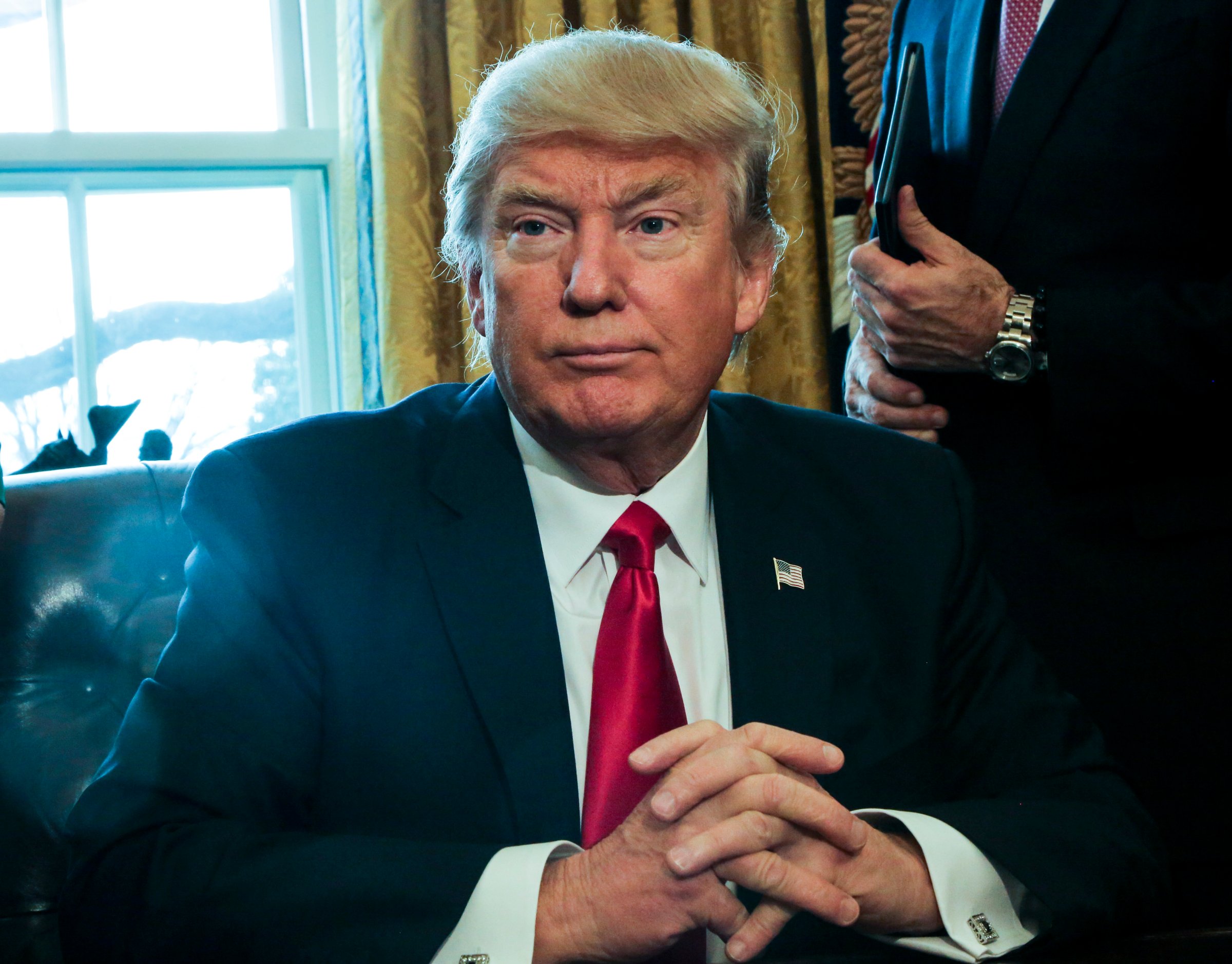
In the fine text of President Donald Trump’s executive order on immigration, which temporarily suspends visa entry from seven Muslim-majority countries and bans refugees from entering the country for 120 days, the Administration offered an interesting additional justification: it would protect women.
“In order to protect Americans, the United States must ensure that those admitted to this country do not bear hostile attitudes toward it and its founding principles,” the order reads. “The United States should not admit those who engage in acts of bigotry or hatred (including ‘honor’ killings, other forms of violence against women, or the persecution of those who practice religions different from their own) or those who would oppress Americans of any race, gender, or sexual orientation.”
The executive order also mandates that the Secretary of Homeland Security make available data within 180 days on “the number and types of acts of gender-based violence against women, including honor killings, in the United States by foreign nationals.”
The idea that we need to curb immigration to protect women lines up with some of Trump’s comments on the campaign trail. He called some Mexican immigrants “rapists.” During a Republican presidential primary debate, he said that “women are treated horribly” by Muslims. In an appearance on Fox & Friends in March he told a Wisconsin voter that women support him because they “really want to have protection” from terrorism.
But some critics have targeted members of the Trump Administration for the way they have treated women.
Trump was heavily criticized on the campaign trail for his behavior toward women, most notably after the release of a 2005 tape that revealed the then-candidate boasting about grabbing women “by the p—” without their consent. Trump later apologized for the comments, but characterized them as “locker room talk.” In a presidential debate, CNN’s Anderson Cooper correctly characterized his comments as describing sexual assault. Trump was later accused of sexual misconduct by a number of women. Trump denied all claims of misconduct.
Trump’s chief strategist and senior counselor Stephen Bannon and Trump’s nominee for Secretary of Labor Andrew Puzder have both been accused of domestic violence. Both men deny the allegations against them and neither has ever been found guilty in court.
At the policy level, domestic abuse victims advocates are concerned that the Administration will cut funding to grant programs administered under the Violence Against Women Act, which are aimed at offering services to victims of sexual assault and domestic violence and “holding offenders accountable,” according to the Department of Justice’s website. The Heritage Foundation, a conservative think tank that reportedly worked with Trump on the transition, called the VAWA grants “a misuse of federal resources and a distraction from concerns that are truly the province of the federal government.”
Victims rights advocates, however, say that those VAWA funds are critically necessary — to quote the executive order — to “protect Americans” from those who “engage in efforts of bigotry or hatred.”
More Must-Reads from TIME
- L.A. Fires Show Reality of 1.5°C of Warming
- Home Losses From L.A. Fires Hasten ‘An Uninsurable Future’
- The Women Refusing to Participate in Trump’s Economy
- Bad Bunny On Heartbreak and New Album
- How to Dress Warmly for Cold Weather
- We’re Lucky to Have Been Alive in the Age of David Lynch
- The Motivational Trick That Makes You Exercise Harder
- Column: No One Won The War in Gaza
Write to Samantha Cooney at samantha.cooney@time.com